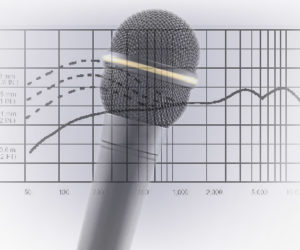One recent day I got to thinking, “Wouldn’t it be great to come up with an idea for an article that would write itself?” It led me to pose the following question to friends on Facebook: “Musicians – what’s the one thing you would like to ask sound engineers/technicians to do differently?”
The answers that I received were different than expected, and they also came from unexpected people: most were from sound engineers and technicians. Maybe this means I don’t have any friends that are musicians, or much more likely, most of them are classical musicians that aren’t often miked.
Nonetheless, most of the respondents are also musicians and they definitely provided several insights. A few folks who are solely musicians answered as well, and they too offered valuable perspective.
So without further further ado, here are the responses:
“Pay better attention to the content rather than the technology” – Ken Freeman, reformed trumpet player and live sound engineer
“I wish live sound engineers would pay more attention to how volume interacts with the acoustics of the room they are working in. Often it’s too loud and the room gets excited and everything becomes hard to hear.” – Bernard Beaudry, film sound mixer, vocalist and guitarist
“When a musician is soloing, FOH should bring up the solo so the audience can hear it. The overall PA level should be low enough and monitors hot enough so the band can hear themselves. Finally, vocals are the most important thing.” – Mike Matthews, who’s played in bands for 45 years, including opening for the Beach Boys and Three Dog Night “back in the day.”
“I wish sound techs would show up earlier than one hour before show time. If the musicians show up before the FOH mixer or stage manager, don’t be angry that they decided to move your mess from last night’s show so they can set up in time for a proper sound check. Get there early and have a clean stage ready to work on, preferably with a rider in hand.
“It (also) really helps when the engineer is a musician of some sort. The more instruments, the better, mainly so that they will know what an instrument is supposed to sound like.” – Jeremiah Sheets, drummer, guitarist and sound engineer
“With affordable digital mixers these days, a lot of guys dig a hole in the menus and lose touch with the idea of ‘filling a room well’ and tend to gravitate toward sterilizing the environment.” – Rodney Gurulé, film sound mixer, metal musician and live sound engineer
“My biggest gripe is the sound tech not checking back in with the musicians after sound check. They are usually “missing in action” after the set/show begins. There will always be adjustments needed after the sound check.” – Jay FizGibbons, drummer and sound engineer
“The kick drum does not have to be so loud. Really, live sound people, it’s not a kick drum shootout, it’s a music concert. Turn the kick drum down and let there be space for music.” – Nigel Jopson, editor of Resolution magazine and recording musician
“As a listener in the audience, please make a natural balance of the ensemble and room acoustic with a bias towards vocal priority. Hyperfocusing on a few things like kick drum, intense SPL or exaggerated bass fill forces me to listen like a rookie. It also makes me suspicious that you’re trying to show off or justify your new speaker purchases.” – Mark Skipper, freelance sound mixer





